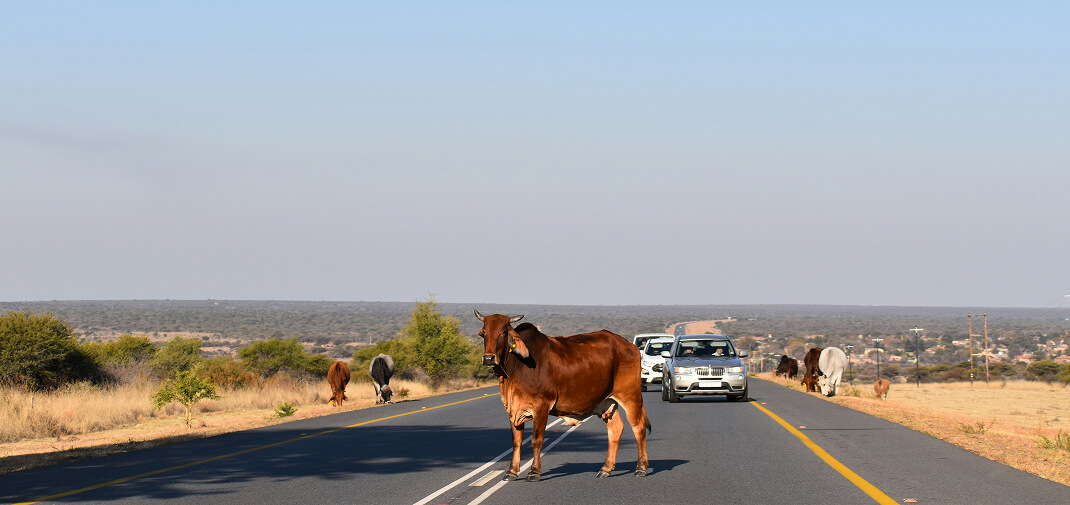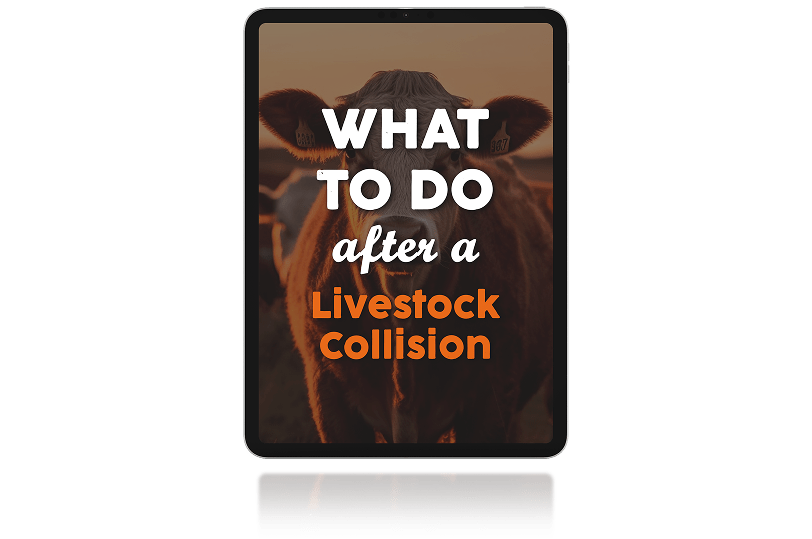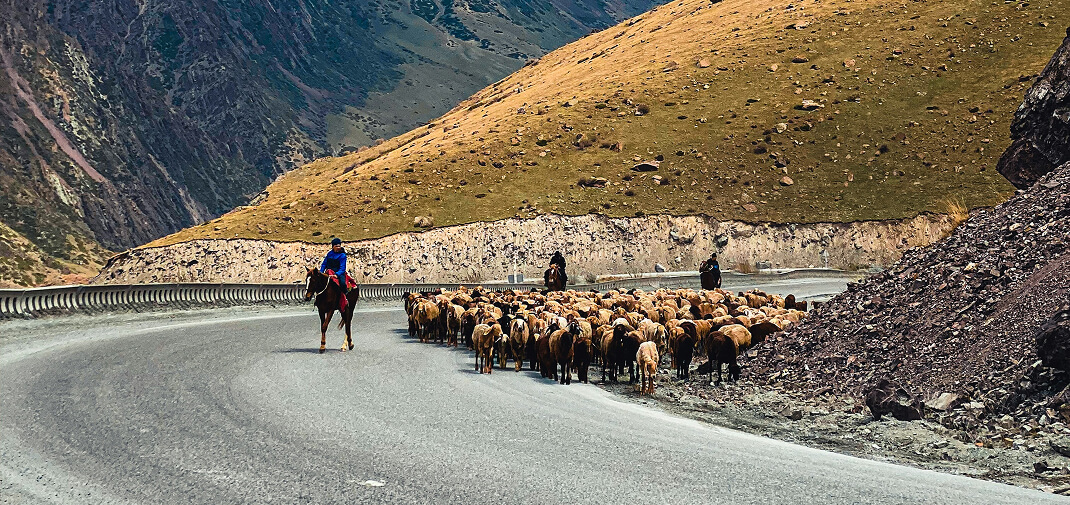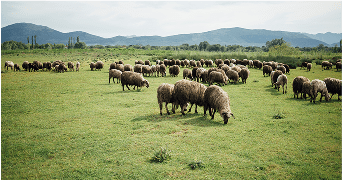
Collisions involving livestock are among the most dangerous types of roadway accidents. When a cow, horse, goat, or other large farm animal enters the road, the results can be catastrophic. Whether the crash involves a direct impact or a driver swerving to avoid the animal, the law allows you to pursue an escaped livestock accident claim if someone else’s negligence led to the animal’s presence.
At Silva Injury Law, we represent victims of animal-related crashes nationwide. Our legal team understands how to uncover the facts, prove liability, and hold negligent parties accountable, whether the livestock came from private property, a commercial ranch, or a poorly maintained fence line.
We fight to recover medical expenses, lost income, and pain and suffering.
We investigate the cause of the crash and hold negligent parties accountable—ranchers, landowners, or government entities.
We handle the legal process so you can prioritize your recovery and your family.
Who’s Responsible When Livestock Causes a Crash?
When a large animal steps onto a public roadway, the outcome can be life-altering. A direct collision with livestock can cause:
- Severe injuries,
- Vehicle rollovers, or
- Chain-reaction crashes involving multiple cars.
Swerving to avoid the animal may result in just as much harm as hitting it directly. Since livestock are domesticated, not wild, California law permits you to file an escaped livestock accident claim if another person’s negligence allowed the animal to be there.
Livestock doesn’t end up on the road by coincidence. In most situations, someone failed to take reasonable precautions. The sections below outline the most common causes of livestock-related crashes and how liability may apply.
Common Causes of Livestock-Related Crashes
California law requires individuals and businesses to act responsibly when managing animals. If that duty is breached and someone gets hurt, the injured party can bring an escaped livestock accident claim and pursue full compensation. By identifying the source of the failure, you can begin building a case for recovery.
Broken or Poorly Maintained Fencing
Property owners and livestock keepers must ensure that their fencing is strong, intact, and capable of containing and restraining animals. When fences are broken, deteriorated, or improperly constructed, animals can easily breach the perimeter and enter nearby roads.
Fences are often the first line of defense between livestock and public traffic. If a cow, horse, goat, or other animal escapes because of a damaged fence that had been ignored for an extended period, the owner may be held liable for failing to maintain safe conditions.
Open Gates on Ranches or Private Farms
Unsecured or forgotten gates are another leading cause of escaped livestock. When a gate is left open or not appropriately latched, animals may wander onto roads without being detected immediately. Whether the fault lies with a ranch hand, tenant, or visitor, the property owner may still be responsible for ensuring all access points are routinely checked and secured.
Neglect by Livestock Transporters or Handlers
When animals are moved from one location to another, they must be properly confined and monitored. Transporters who fail to secure trailers, use inadequate barriers, or mishandle unloading zones risk exposing drivers and animals to danger. If an animal escapes during transit and causes an accident, the company or individuals responsible for transporting and supervising it may be liable.
Public or Private Events That Release Animals Near Roads
Events involving livestock, such as rodeos, parades, petting zoos, or community fairs, may put animals near traffic. Animals can break loose and wander into the street without proper enclosures, signage, or crowd control.
Event organizers, venue operators, or contracted animal handlers may be liable for failing to implement reasonable safeguards in these cases. Protecting the public includes planning for containment and responding immediately if an animal escapes.
Common Injuries from Livestock-Related Accidents
These crashes often cause long-term physical and emotional harm. Injuries may include:
- Traumatic brain injuries from direct impact;
- Spinal cord trauma due to vehicle rollover;
- Multiple fractures or crush injuries;
- Severe lacerations and internal bleeding; and
- Psychological trauma, including post-traumatic stress disorder (PTSD).
Recovery can take months or even years, and medical bills can pile up quickly. A successful escaped livestock accident claim can help you recover compensation for medical expenses, lost income, property damage, and pain and suffering.
What Are California’s Open Range and Fencing Laws?
In California, the rules surrounding livestock on public roads depend on whether the area is classified as “open range” or “closed range.” In open-range zones, livestock owners are generally not required to fence in their animals, which can make it harder for injured drivers to determine fault. Most counties, however, have adopted closed-range ordinances that require owners to keep livestock secured and away from public roadways.
How Local Rules Impact Liability
These local rules matter, but do not give livestock owners complete immunity. When a crash occurs, liability turns on whether the person responsible for the animal failed to take reasonable precautions. Local fencing ordinances, animal control records, and property maintenance history can all play a role in determining fault.
State Laws and Liability
State law adds another layer of complexity. Under the California Food and Agricultural Code, a collision between a motor vehicle and a domestic animal does not automatically imply the animal’s owner was negligent. The injured party must prove that the owner or controller of the animal acted unreasonably or failed to prevent a foreseeable hazard.
Each case hinges on specific facts, including where the crash occurred, how the animal escaped, and whether reasonable care was taken to prevent harm. A strong escaped livestock accident claim depends on clear and persuasive evidence.
Get Answers with Livestock Accident FAQ
You Don’t Have to Handle the Aftermath of a Livestock Crash on Your Own
Escaped livestock accidents can leave you with more than physical injuries; they bring unanswered questions, legal uncertainty, and financial stress. At Silva Injury Law, we understand how to hold negligent property owners, handlers, or event organizers accountable when their failures lead to preventable harm. We know California’s livestock and fencing laws and how to build a case that gets results. Contact Silva Injury Law today for a free consultation. Let’s work together to get the answers and compensation you deserve.


